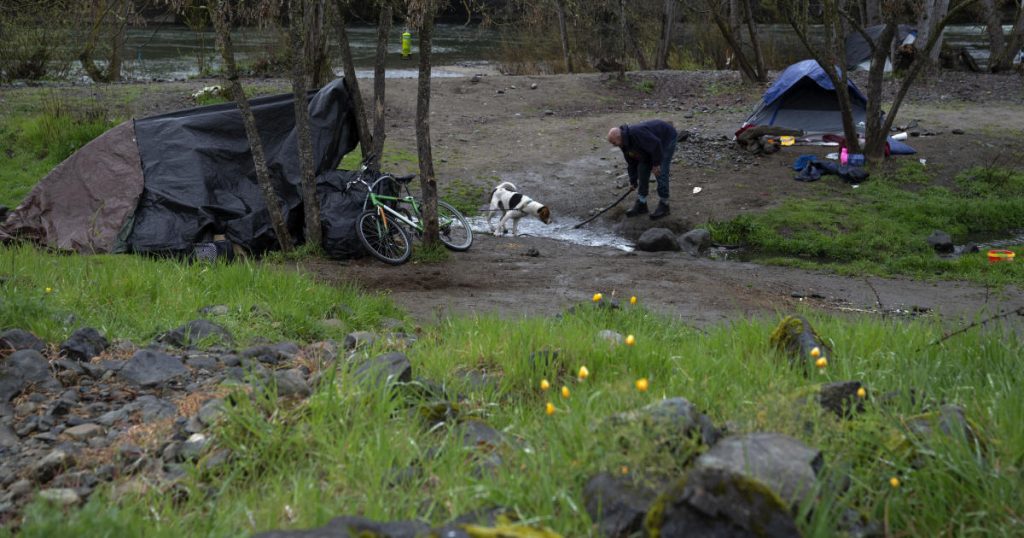Washington — The Supreme Court is set to hear arguments in a case involving the homeless and bans on where they may sleep, marking the most significant case on the issue in several decades. The dispute centers around laws that punish homeless individuals with civil citations for camping on public property and whether these laws violate the Constitution. As cities grapple with rising homelessness driven by high housing costs and the expiration of COVID aid programs, the Court’s decision will have implications for how city and state officials can address homeless encampments across the country.
The number of unsheltered people in the U.S. has been on the rise, with a 12% increase in homelessness from 2022 to 2023, the highest level since tracking began in 2007. Advocates see the upcoming Supreme Court case as a pivotal moment in addressing the homelessness crisis, with potential far-reaching consequences. The case originated in Grants Pass, Oregon, where the city enforced ordinances prohibiting camping on public property and in city parks. The ordinances resulted in fines and potential jail time for homeless individuals, leading to a legal challenge that has now made its way to the Supreme Court.
In Grants Pass, three homeless individuals sued the city over its public sleeping and camping ordinances, arguing that these laws constituted cruel and unusual punishment in violation of the Eighth Amendment. A federal district court in Oregon ruled in favor of the challengers, barring the city from enforcing the ordinances against homeless individuals during certain hours and at night. The 9th Circuit Court of Appeals upheld this ruling, leading Grants Pass to appeal to the Supreme Court. The case has sparked a broader debate over the criminalization of homelessness and the limits of cities’ authority to address the issue.
Advocates for the homeless argue that these laws effectively punish individuals for being homeless and living outside when they have nowhere else to go. They contend that fines and jail time for camping on public property are unconstitutional under the Eighth Amendment. On the other hand, city officials maintain that these measures are necessary to address public health and safety concerns associated with homeless encampments. The Supreme Court will weigh these arguments and decide how far cities can go in addressing homelessness while respecting individuals’ constitutional rights.
The case has attracted input from a wide range of stakeholders, including advocacy organizations, law enforcement agencies, cities, states, members of Congress, and the Biden administration. The Justice Department has weighed in, supporting the 9th Circuit’s decision that prohibits local governments from effectively criminalizing homelessness. It also argued that broad injunctions like the one issued in this case may limit cities’ ability to respond to public health and safety concerns. The Supreme Court’s decision is expected to provide clarity on the issue of homelessness and the legal boundaries around addressing it.
Several major cities, including Phoenix and San Francisco, have asked the Supreme Court to allow them to address public health and safety concerns related to homeless encampments. These cities argue that the 9th Circuit’s decision has hindered their ability to enforce laws that regulate where and when homeless individuals can sleep and erect tents on public property. A decision from the Supreme Court is anticipated by the end of June and will have significant implications for how cities and states address the homelessness crisis moving forward.


